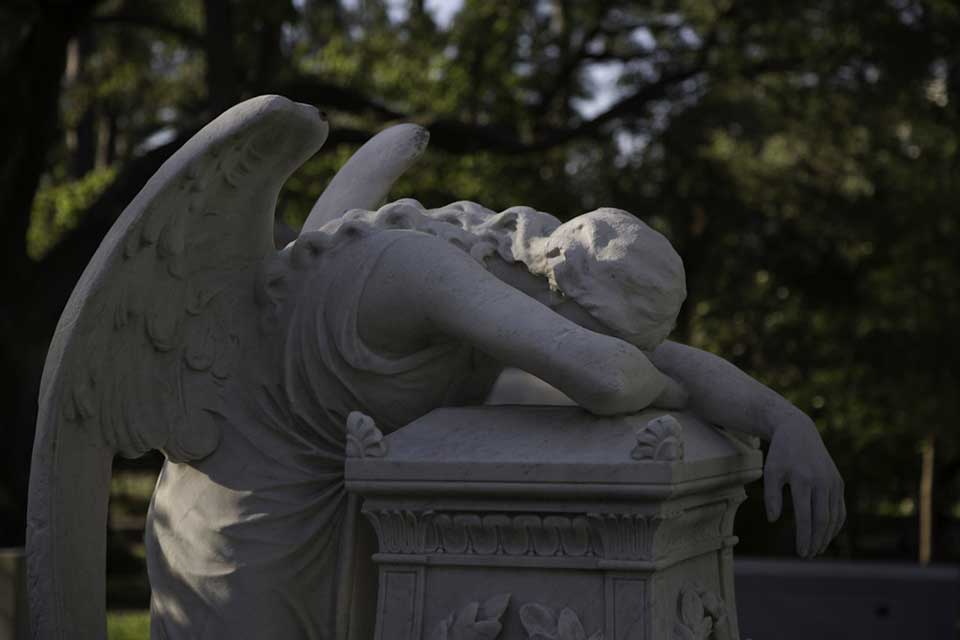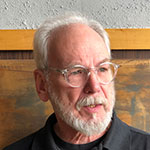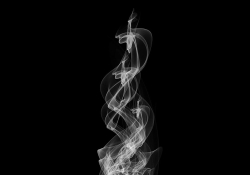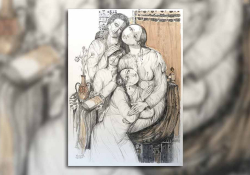Two Poems

In Which I Try to Imagine Justice
without a thought to efficiency, without a thought
to deadlines, with only my fear of the spreading stain
of a cozening jocularity supplanting joy, a plastic
fool’s gold, funny money, blood on the floorboards
scrubbing won’t lift from the grain. Another failure,
this one to even approach the subject: where to begin?
With the understanding that injustice and injury’s
lexical relation may yield a version of recompense
better than metaphor? Especially than scales,
and a woman, blindfolded, with brandished sword?
With the understanding we have yet to think
deeply enough about our aims for reconciliation
and for redress? For example, you were a soldier,
right? You were a guard, correct? How was it,
walking the parapet? Was it hard to keep all those
keys straight? Hard to keep feeling important?
And was it hard to keep all the job’s words straight?
So hard that soon there was no room for new ones?
Thinking metaphorically is historically how we do it,
but we had better leave metaphor for another day
when we can sit with each other, knees touching,
holding hands, our heads bent forward, weeping.
How to Get By
Forget what you’ve seen, and for your own sake,
give up understanding what you’ve understood.
Call it an accident, not hatred. Call it a mistake.
Pretend you’re like the others. Do your best to fake
their manias and worries, carry on as if you could
forget what you’ve seen, and for your own sake
don’t get caught in conversations that may take
your taking a stand. It wasn’t, after all, your blood.
Call it an accident, not hatred. Call it a mistake
a good person, fearful and confused, might make,
and don’t object when fear is based on falsehood.
Forget what you’ve seen, and for your own sake,
no matter what you’re thinking, be opaque.
Let others project on you what suits their mood.
Call it an accident, not hatred. Call it a mistake
to think your outrage, your anger, your heartache,
if spoken, might change anything or do any good.
Forget what you’ve seen, and for your own sake,
call it an accident, not hatred. Call it a mistake.















